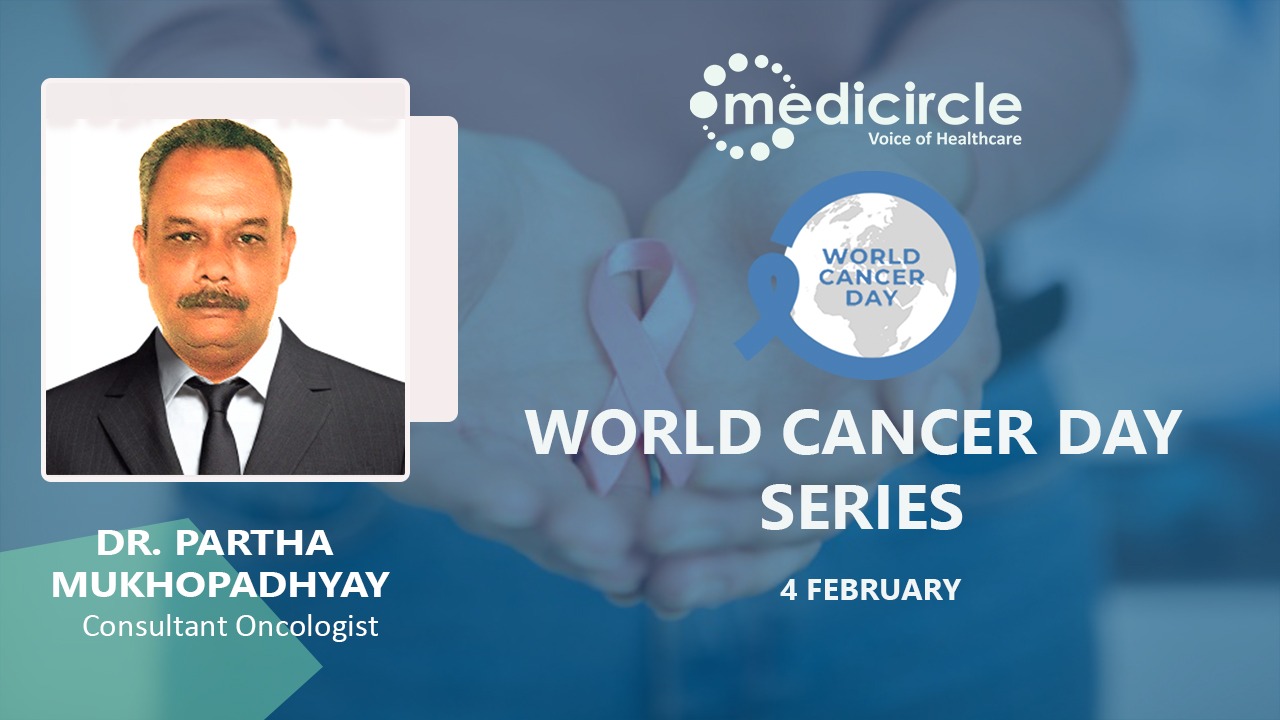Cancer is the name given to a collection of related diseases. In all types of cancer, some of the body's cells begin to divide without stopping and spread into surrounding tissues. Do you know 10 million people around the world die each year from cancer? According to a recent report by the National Cancer Registry Program of India, the predicted number of patients with cancer in India is 13, 92,179 for the year 2020. And the common five leading sites are breast, lung, mouth, cervix, and tongue.
Dr. Partha Mukhopadhyay, Consultant Oncologist in different capacities in India and abroad - South East Asia and Africa since 2003. He is a Regional Director (Africa) - Artemis Hospital since 2017 and has approximately 50 peer-reviewed publications in medical journals and 75 invited lectures in different forums. He has also served as an expert in oncology for the NDTV web portal to answer queries from patients and as the medical advisor to Aureate Pharmaceuticals during its inception
Economic and resource constraints
Dr. Partha shares his thoughts, “The three cancers – breast, tongue, and cervical are no doubt the commonest cancers that we encounter in Indian patients. All of them are detectable at an early stage, screenable, and hence curable to a large extent. The good things about these three are that they are either visible or palpable even in the early stages thus translating into higher cure rates. In India, we cannot follow the standardized screening procedures for breast and cervical cancer, due to economic and resource constraints but we surely can modify our screening and early detection strategies, tailor-made for Indian conditions with good and comparable results,” he says.
Need for sound health education policy
Dr. Partha explains, “The incidence and the prevalence of cancer in India has reached dizzying heights and it continues to grow. The reasons are multi-factorial with a spectrum ranging from rapid and uncontrolled urbanization with associated rising levels of pollution, unhealthy lifestyle, adoption of unhealthy food habits including fizzy drinks and fast food with suboptimal ingredients and cooking medium, rampant consumption of alcohol, and smoking/vaping in the younger generation, adulteration of food and chemical plus mineral pollutants in groundwater and in vegetables due to insecticides/pesticides. Added to this are better methods to diagnose a disease with precision. The only way to control this is to have a sound health education policy starting at the school level, a sound and effective public health policy (which we woefully lack), and general education of the masses as a national initiative. There should also be punitive action on vendors if they don't meet standards in any food item sold in the open market and PDS scheme,” he says.
Effective screening methods
Dr. Partha sheds light on the subject, “It is true that some cancers have a genetic predisposition but the numbers of such cases are very low. As an example, I may say that breast cancer has a genetic predisposition but the total number of cases is now hovering at around 3 - 4% of the total cases of breast cancer. Ovarian cancer, colon cancers also have a hereditary predisposition but mostly all cancer cases are spontaneous in developing. In patients with a strong family history of these cancers, effective screening methods are available and these options should be discussed with the patient and family,” he says.
(Edited by Rabia Mistry Mulla)

 “It is true that some cancers have a genetic predisposition but the numbers of such cases are very low,†says Dr. Partha Mukhopadhyay, Consultant Oncologist.
“It is true that some cancers have a genetic predisposition but the numbers of such cases are very low,†says Dr. Partha Mukhopadhyay, Consultant Oncologist.










.jpeg)



.jpg)





.jpeg)

.jpg)





.png)

